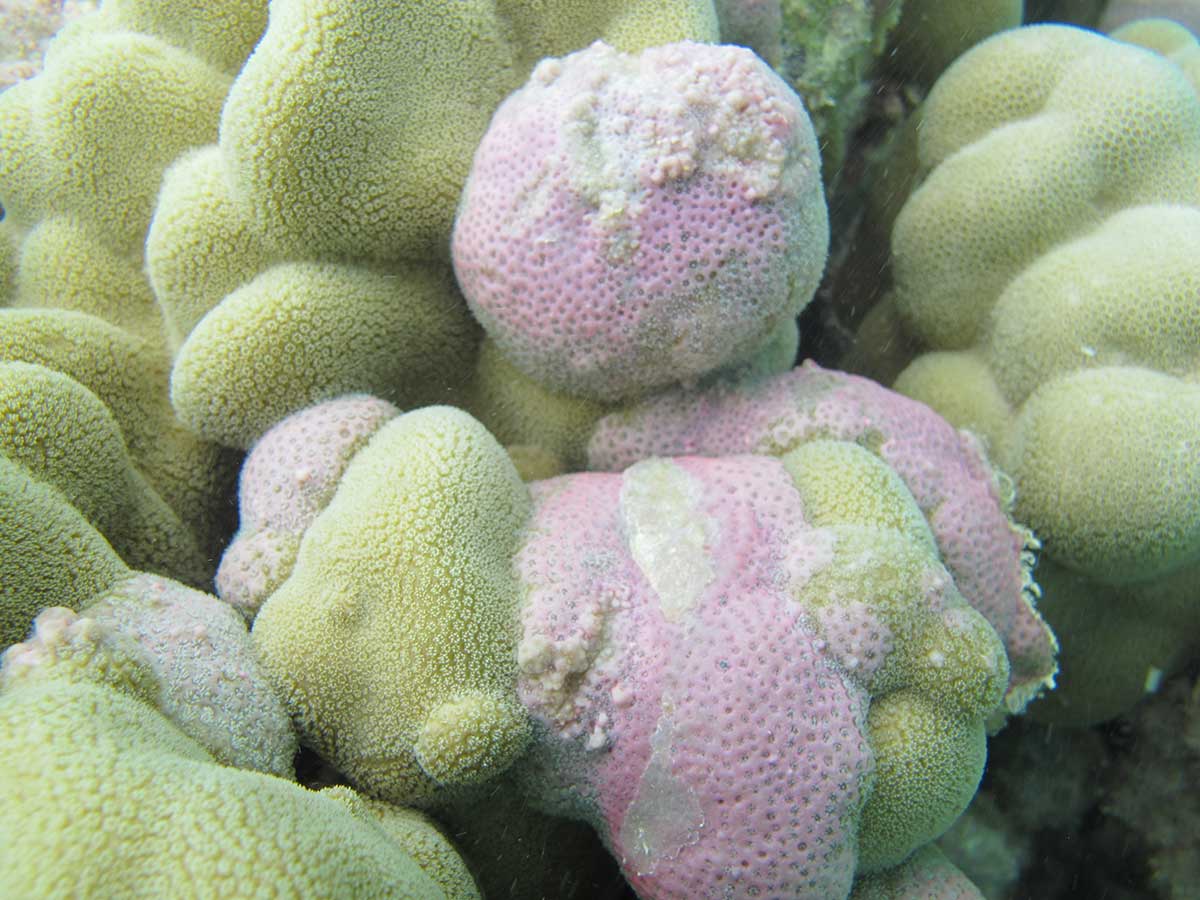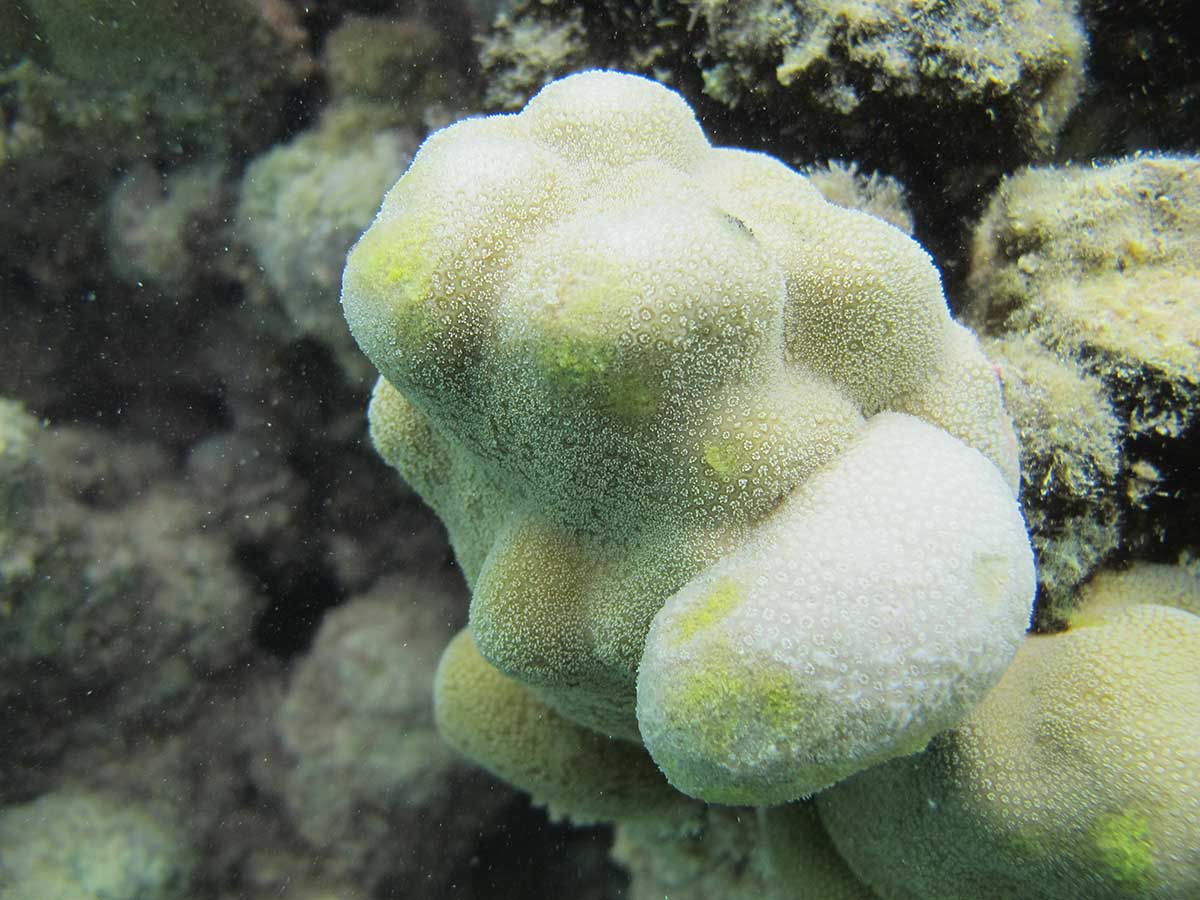Diseased corals are the research target for our next mission in Hawaii, conducted in collaboration with Centre Scientifique de Monaco (CSM) and TARA Expeditions Foundation.
CSM will study diseased corals in Hawaii from June 15-25, 2018.
In past decades scientists have observed drastic increases of coral disease, showcasing the negative effects fo climate change and ocean acidification on the health of marine ecosystems. Unfortunately, the close connection between the future of the oceans and climate leads us to expect that diseases affecting the reefs will continue to increase. Studying these major changes in marine ecosystems has been the driving force for the collaboration between HSH Prince Albert II and the Tara Expedition Foundation since 2009 and more recently with the launch of Monaco Explorations in 2017.

With experts in how tropical, Mediterranean and deep coral reefs function, the Scientific Center of Monaco has been a partner of the Tara Pacific Expedition 2016-18. In Hawaii, the CSM team will take advantage of the visit of the Tara in Kaneohe Bay, to conduct field work focusing on coral abnormal growth for the Monaco Explorations in collaboration with the Hawaiian Institute of Marine Biology of the University of Hawaii.
From the 15thto the 25thof June, the CSM team will concentrate their work on “tumors” found on corals, a phenomenon with poorly understood origins that affects more that 40 species of Scleractinian corals in the Indo-Pacific and Caribbean regions. This disease is characterized by an abnormal growth on a distinct area of the colony. Although the growths are known by some scientists as “tumors”, their malignancy remains to be determined. Yet, the origin of this disease may involve the bacteria living on the abnormal tissues.
From coral to human health
Similar to classical model organisms, these “tumors” represent a unique opportunity for multiple studies that would enrich our knowledge of coral biology, as well as coral innate immunity, which shows close similarities to humans. In fact, studying diseases to understand how healthy organisms function was the central tenant of experimental medicine practiced in the middle of the 19thcentury by Claude Bernard, the father of modern medicine. The CSM researchers will apply the same approach to understand corals today.
Beyond the importance of this project to the future of coral reefs, this work will also help us better forecast future biomedical or biological problems, such as the links between diseases and the interactions of host-pathogens. Thanks to its double capacity in coral and medical biology, the CSM is a unique laboratory possessing the expertise to study these abnormal growths from the colony to the gene.

Some samples from healthy and affected coral colonies will be immediately processed to extract molecules of interest in the laboratory of the Hawaiian Institute of Marine Biology (HIMB), before being shipped to Monaco. Others samples will be quarantined and shipped live to Monaco to be kept under controlled conditions in the laboratory. In total 120 samples will be collected from the three main reef-building coral species in Hawaii: Porites lobata, P. compressa, and Montipora capitata.
Monaco will co-chair the International Coral Reef Initiative (ICRI) in July 2018
As 2018 was announced the International Year of the Coral Reefs, this mission conducted by the CSM as part of the Monaco Explorations in collaboration with Tara and the FPA2, constitutes also the first contribution of the Principality of Monaco as co-chair of the ICRI. ICRI was founded in 1994, with the goal to internationally promote knowledge and solutions allowing the preservation of coral reefs and associated ecosystems. From July 2018 until 2020, Monaco, Australia and Indonesia will co-chair the organization. One of the goals to meet in 2020 is to produce a global report on the state of these ecosystems of considerable ecological and socio-economical importance.
